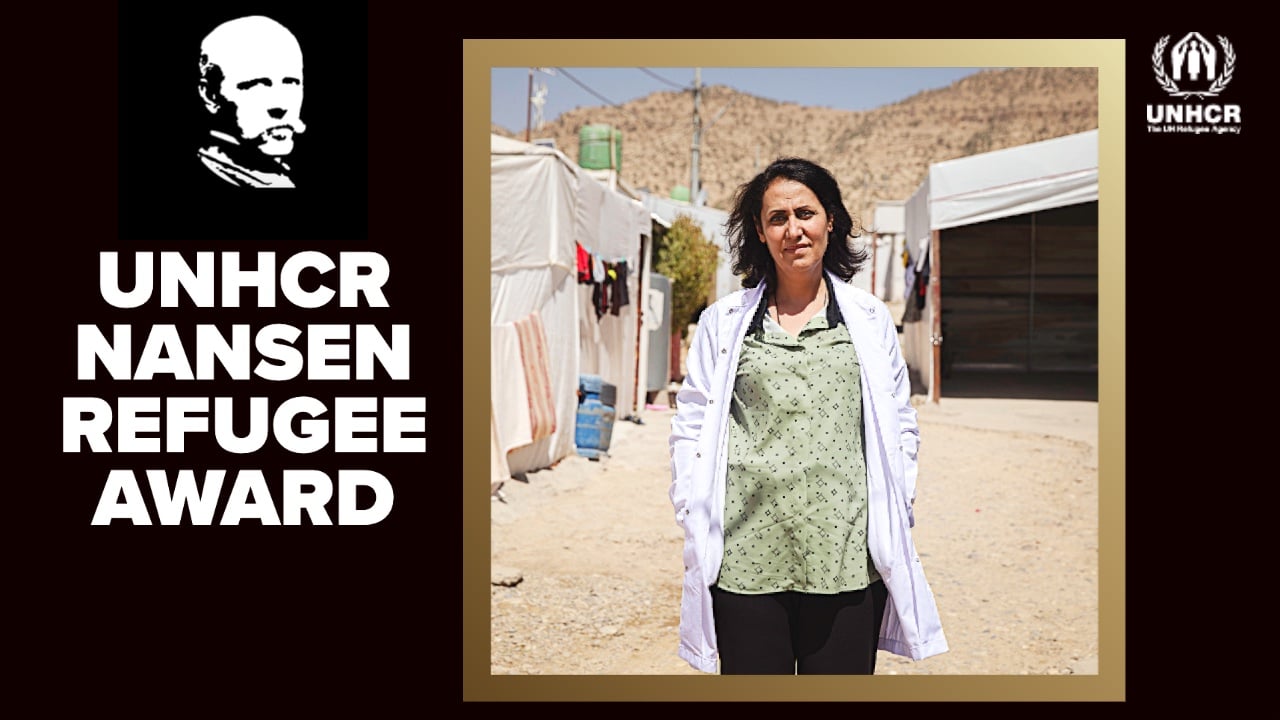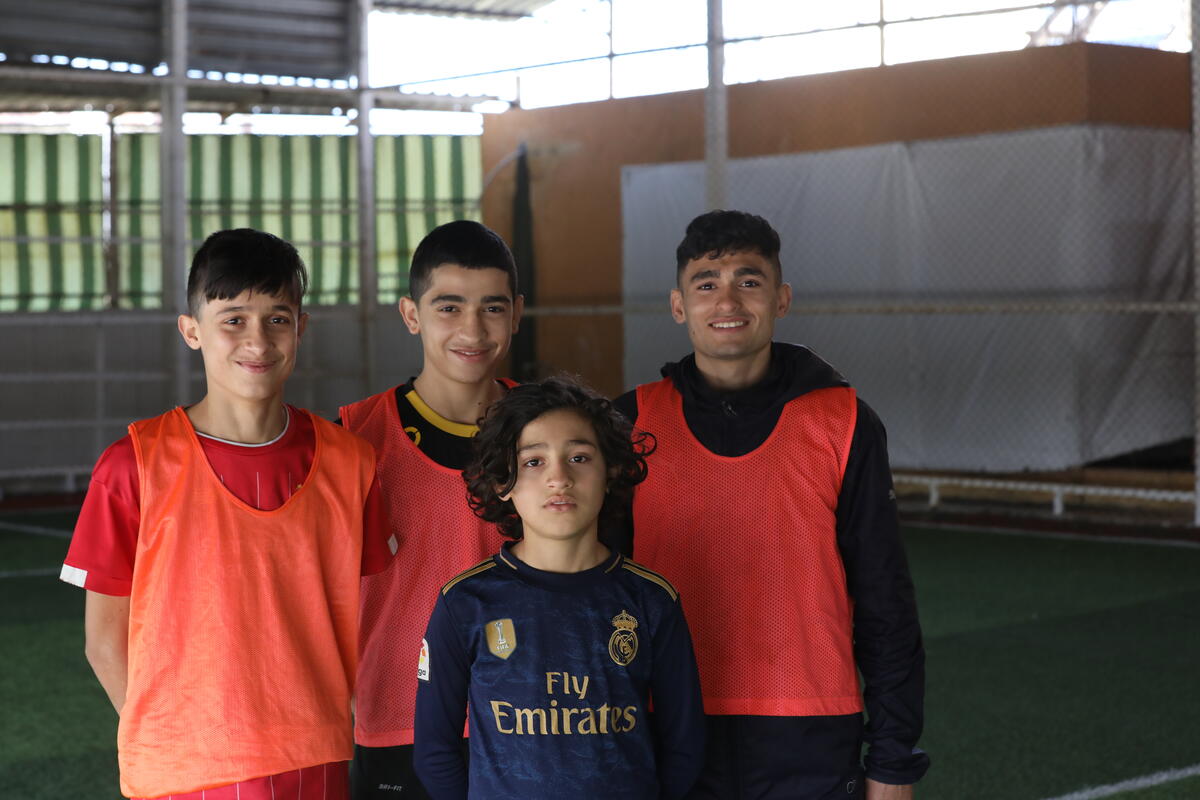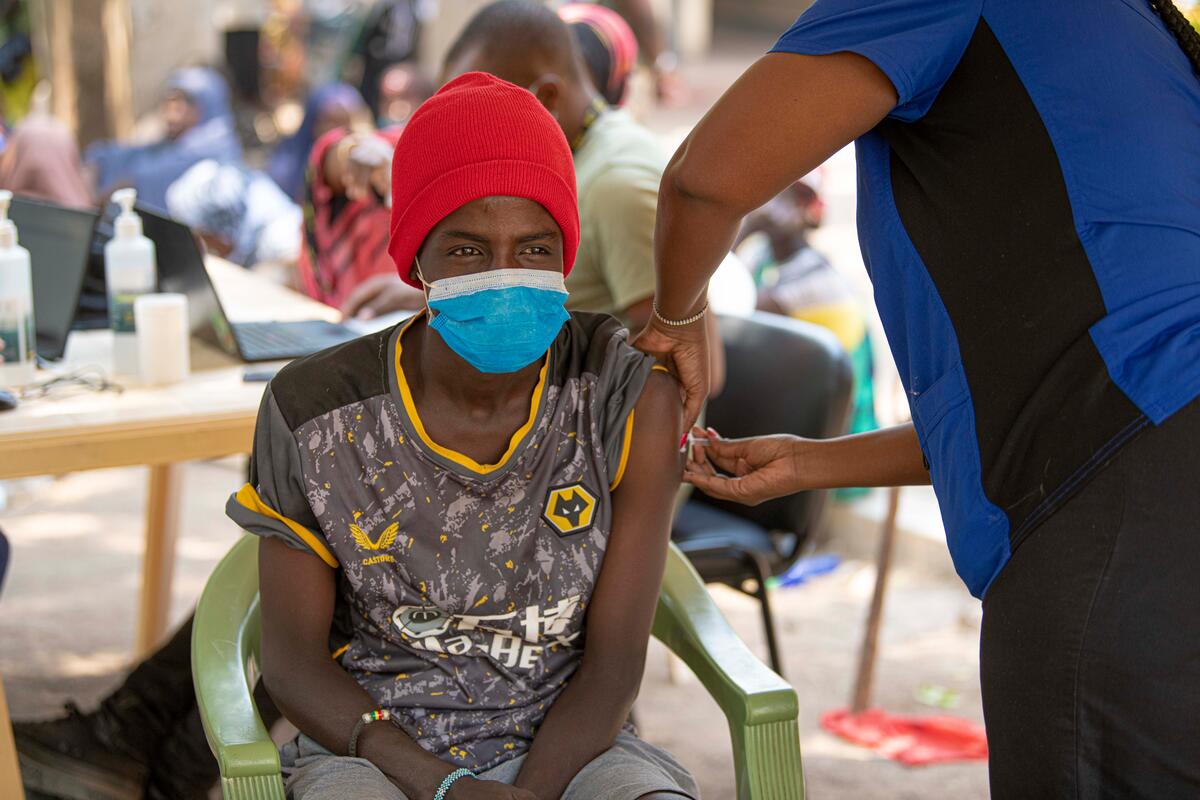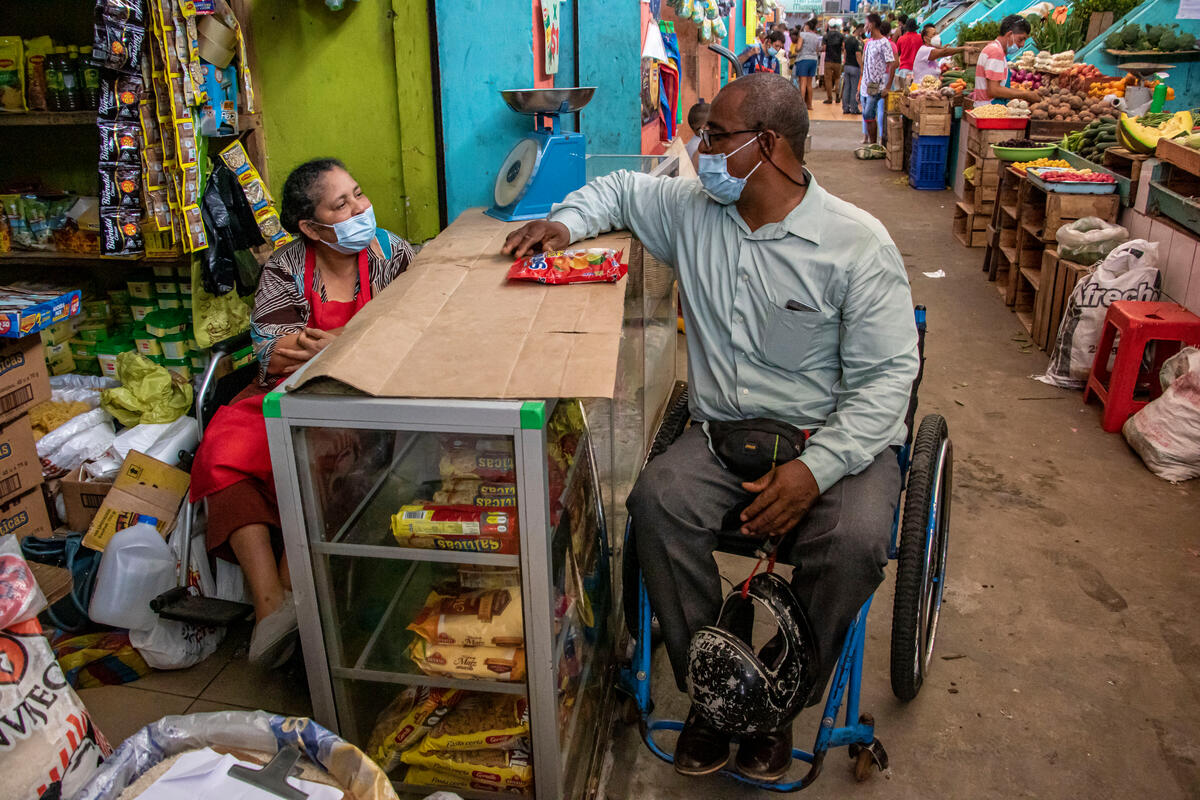Ecuador tells refugees they have free access to public health services
Ecuador tells refugees they have free access to public health services

LAGO AGRIO, Ecuador. 10 September. (UNHCR) - Authorities in Ecuador, the Latin American country with the highest number of people needing protection by the UN refugee agency, have launched a media campaign to ensure refugees know they are entitled to free public health services.
"Refugee women and men have the right to benefit from the services offered by the Ecuadorian government. But health, more than a service, should be considered a right of the whole population," Minister of Foreign Affairs María Fernanda Espinosa said in Lago Agrio, capital of the province of Sucumbíos in northern Ecuador.
The region neighbours Colombia's volatile region of Putumayo. Over the last decade, Ecuadorian border towns such as Lago Agrio have seen a rapid growth in the refugee population escaping the violent internal conflict in Colombia.
The health campaign, led by the Ministry of Foreign Affairs, is being produced with support from UNHCR and the Ministry of Public Health. UNHCR's representative in Ecuador, Marta Juárez, and Minister of Health Caroline Chang attended the 6 September ceremony. Espinosa thanked UNHCR for its "intense collaboration" with the government in its effort to become a leader in human rights protection.
Leaflets and posters will be distributed and a radio announcement will be aired in the northern provinces of Ecuador. Medical staff will be trained on refugee rights. Hopefully this will ensure that refugees, as well as the local community, can access good medical services.
Ecuador is the Latin American country with the highest number of persons in need of international protection, estimated at 250,000. However, whether from a lack of information, security fears or simply because they live in very remote areas, only 45,000 have registered with government authorities or UNHCR. That has left thousands without legal protection and with limited or no access to public services.
This new campaign to inform refugees about health services is part of a broader effort by the government and UNHCR to protect and assist all these Colombians needing International protection. UNHCR is conducting a nationwide survey this year to locate these tens of thousands of Colombians and assess their needs.
The Ecuadorian government recently announced development plans for Sucumbíos and three other provinces bordering Colombia. "Plan Ecuador" includes measures to improve the integration and standard of living of Colombians who have fled their homeland over the years. Ecuador is even considering regularizing the status of all Colombians on its territory.
However, in many localities there are no services and since 2000 UNHCR has concentrated its efforts in the northern border area, implementing projects to improve the living conditions of refugee hosting communities in order to foster integration and peaceful cohabitation.
Some of these projects, said the UNHCR representative, have been aimed at improving health services available to both refugees and small local communities in the province. Juárez said UNHCR is part of a project for the prevention of HIV that is being implemented in a joint effort by eight UN agencies.
After inaugurating the campaign, the authorities visited the neighbourhood of San Valentin on the outskirts of Lago Agrio, which has a high concentration of refugees. Ramón Soria, the chief doctor at the local health centre that was opened then by the minister of health, said nearly 70 percent of his patients are Colombians.
A 38-year-old Colombian woman was among five refugees standing in line to get medical attention. She arrived in Ecuador with her three children 18 months ago after her father was killed, leaving behind her house and land to start a new life in Ecuador.
"I want to thank you and the Ecuadorian government for everything you have given us - for the opportunity to live in peace," she told Ecuador's foreign minister.
By Xavier Orellana in Lago Agrio, Ecuador









